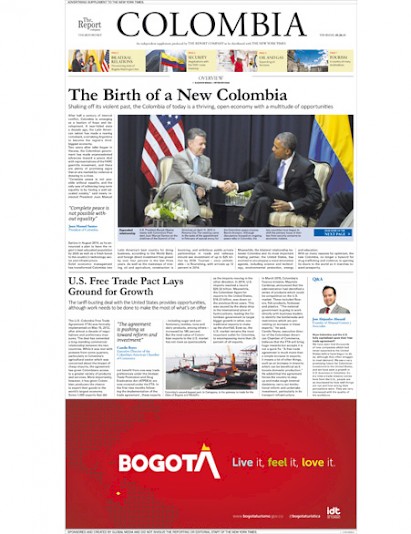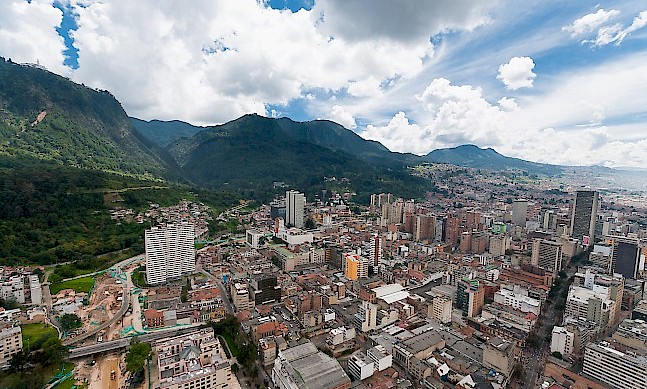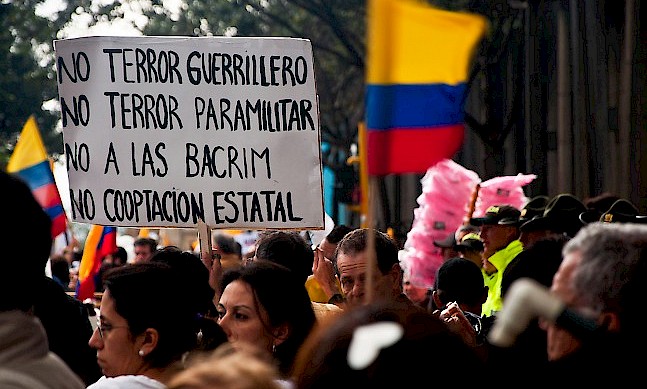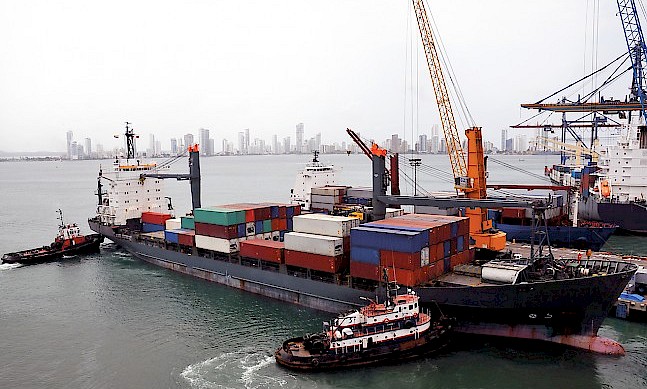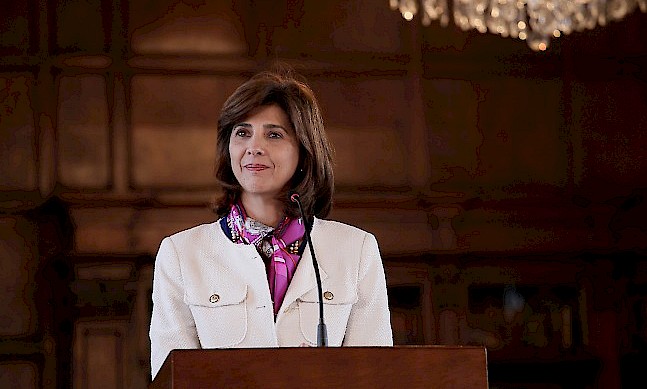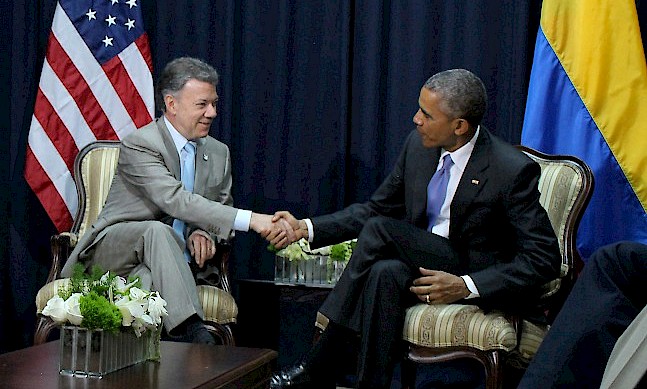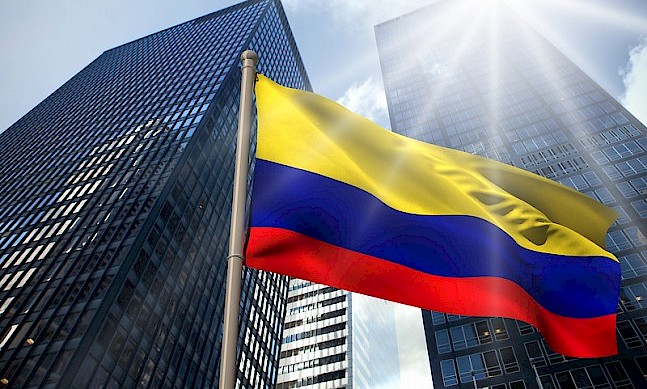One of Colombia’s largest financial conglomerates, Grupo Bolivar celebrates its 75th anniversary this year, having been in existence since 1939. While the group’s trajectory has been led by that of the country, Miguel Cortes – who took over as chairman following his father’s retirement in 2011 – believes that the reverse can also be true. In an exclusive interview with The Report Company, he explained how Grupo Bolivar intends to influence the growth and development of Colombia and Colombian society.
The Report Company: How would you appraise the business climate in Colombia?
Miguel Cortes: There is a capacity for the country to show that there’s consistency in political leadership. Investors who come here want to invest for long periods; they’re usually not coming here just for a one-year project. They want to see if there’s stability around the people who are going to lead the country. In Colombia we have been extremely lucky in that we have had leaders who have been pro-opening up, pro-employment and pro-business throughout many years but especially during those very dark years of the 1980s and 1990s.
I’m saying this because in our neighboring countries, leaders sometimes say that business is bad. However, if you look at anywhere in the world, business is good because it’s the only way to create employment. So we’ve been very lucky with our leaders and the leaders they have chosen as their ministers and secretaries. They have all been what I would consider good, honest people.
Colombia was the only country that I know of in the last 15-20 years that had four great candidates in the last elections. Any one of them would have been great. None of them would have changed the way Colombia was run. That creates an environment that is wonderful for growth and for foreign investment. All the candidates wanted a better Colombia and a better Colombia is an employed Colombia where there are better employment rates, a better healthcare system, better roads, better education, and that essence is what makes it fun to be here. It doesn’t mean that we don’t have problems but it makes our sector great.
Business has to grow faster than the country’s economy in order to sustain growth, and we’ve been able to help the country grow faster. Our responsibility as corporate citizens is to make sure that the country continues to grow at a stable rate. Even when Colombia was down and out we never left. We invested and reinvested and we have continued to reinvest in our company because we continue to believe that Colombia is an amazing place. Now we’re investing in Central America. Even though we as Colombians are investing overseas, it doesn’t mean that we don’t believe in our country; it just means that we are now strong enough that we can invest overseas.
As a corporate citizen our value is to make sure that great people get into government and create a better Colombia. Why are we doing well? Because without them we couldn’t do well. It’s got to be a partnership.
TRC: You have been appointed as leader of Grupo Bolivar after four decades under your father’s management. What new strategies are you bringing to the organization?
MC: We are and have always been a value-driven organization. That is our essence; our culture is that. With all the problems that have happened all over the world, that concept is coming back. We have never left that concept because that is who we are.
Even though the bank has a very different culture than the insurance company, than the construction company, than the trust company, than the other entities that we have, this is like a family. We treat our employees like family members and we help each other like family members but we have rules like family members. It’s very easy when you have the basic principles and values that we have. We value the human being, the employee. The creator of wealth is our employees and if we can have them talk to each other we can create wealth for our clients and the community.
“The testament to the peace process is there is a lot of investment and reinvestment in the country.”Tweet This
What has changed is that we used to have, like many companies, just a mission, a vision, and values. The question that we asked ourselves was, why do we exist? We’ve created our higher purpose, which is to enrich life with integrity. In Spanish, enrich means to add value but it also means to get wealthier. It’s a play on words, and it means for us definitely to add value. When you have that powerful higher purpose, then people begin to see life differently. If we can get the 21,000 employees and 3,000 insurance agents that we have to work with integrity and to think of themselves as enriching life then that concept is very powerful.
We have lots of stakeholders and we see that we together, suppliers, employees and agents all that have to come together to offer something to the clients we take care of and more importantly our community. And if we do well, then our financials will look good. What we find difficult is to make decisions that have financial results that are only positive because then we end up taking a short term look at things. When you do that there is no construction of value. We are a long-term set of entities that have to add value to the community and to our clients. To do that we have created a higher purpose. We’ve turned ourselves to be much more client-focused.
We’re trying to transform our employees so that once they leave the office they have to continue being a good citizen. It’s about what’s best for Colombia, not what’s best for the industry. It’s very hard but that’s the way we transform the country. If we only think about things in terms of ‘what’s in it for me’, then we will not succeed and this developing country will not be successful.
TRC: Where do you see opportunities for growth and expansion within Colombia?
MC: The oil and mineral area has been growing for a while. We are very fortunate and blessed to have lots of resources. For us other areas are important for example low income housing; there’s a deficit of housing and so we have changed over time what type of housing we do. We build low income housing: last year we built around 15,000 homes and this year it will be the same. We used to build houses. Now we say we build communities. It used to be that we built a house and you would buy it. Now our work starts the day we give the house to these people. We teach them how to live in a community. We spend a lot of time and effort because these are very poor people and, for example, their way to solve problems usually has been with violence or some type of physical or verbal confrontation. Living in a community means having conversations, so we teach them how to talk to each other. We teach them how to cook, how to talk to policemen and how to pay their bills. We send the community leader to university and we teach them how to manage a community. All this is free.
It’s been fascinating because after many years of doing this we now know that those people are more likely to pay their home loans so it’s been great for the banks; they send their children for a longer period of time to school and they are healthier families with fewer divorces and less domestic violence, so it’s been quite fun to see that. We’re building citizens. This is the result of building a community. This is the kind of objective that we have. We have a foundation that does a lot of great things but we’re trying not just to give away money but from our entities themselves create value. It’s changing the way that we do business.
TRC: What international ambitions do you have for the company?
MC: We have already carried out two or three ideas. We went into Central America. We bought some of the HSBC banks. We’re in Panama, Costa Rica, El Salvador and Honduras. We are in banking and in some of those countries in insurance. We have invested in a new sector for us which is pensions because we believe that the pension business has changed Latin America in the past few years because it created stability of investment. We’re looking to see what type of other ideas we can come up with to add value.
“Even when Colombia was down and out we never left. We invested and reinvested and we have continued to reinvest in our company because we continue to believe that Colombia is an amazing place.”Tweet This
TRC: What can you tell us about Grupo Bolivar’s participation in the VivaColombia low cost airline? Is this something of a departure from your usual business?
MC: We have always been promoters of new companies and new business. Low cost airlines are a new business. It’s not a strategic business; VivaColombia simply falls within our concept of promoting new businesses and helping them start up. It is a simple idea: there was no low-cost airline here; now there is. Colombia is very rugged and full of mountains and to go from one place to another takes 12 hours. The idea of the airline is that for a low price and in one hour you can get across the country. The idea isn’t to capture market from the other airlines but from the people who are riding a bus to cross the country.
In two and a half years the airline has ended up with 2.3 million passengers; nine percent of the market. It’s been exciting. There’s lots of benefit; the company is profitable and as opposed to the rest of the airlines, this airline is doing well. We go into business to benefit somebody or something. Not necessarily for the best return. And then we pull out because that’s not our business. We’re more like angel investors. It’s just a venture that is great for Colombia.
TRC: What reforms would you like to see in order to make Colombia more competitive?
MC: Our financial sector faces the same problems that exist in the US, Britain, Italy, China, and so on. While the pro-business approach is consistent, the regulations have not been consistent. There is a new tax law that is being decided. This tax law is totally pro-project and not pro-business. No company will settle in Colombia if certain taxes are put in place. That’s bad for employment and business short term. Regulations and taxes are issues that need to be talked about. The great thing about Colombia is that the government has great managers in its ministers and they have a conversation and talk to different sectors.
The testament to the peace process is there is a lot of investment and reinvestment in the country. However, taxes make a lot of difference. People have choices and they can just pick up and go, so if we don’t get it right people will leave. We are concerned about that.
TRC: What is your short-term future outlook for the company?
MC: Wherever we go, we have to do it with our style and with our values. We can’t compromise to get somewhere. We like our sectors; we like insurance, we like banking and real estate, and with those come trust companies and wealth management companies. We still see a lot of organic growth in Colombia. M&A is harder, but we like the region. We like the Pacific coast, Peru and Chile and that area; at this moment I don’t think we’re big enough to go into Brazil, Mexico or the US but things happen. We don’t like to overextend ourselves. We take our time and we don’t have the pressure to make quarterly earnings. We’re thinking five and ten years ahead.
We are innovating for the very bottom of the pyramid because they have to come up and it is only through financial inclusion and teaching and savings that they will be able to come up. For us it’s about how to create products within our company to create a better world. That is what we are working on. What we see for the future is not only how we are going to work on the business and the bottom line but also how we are going to create a better society and add value. That is what we’re doing and we’re doing it in all our companies. We do have very serious plans and budgets and ideas but our long term plan is to continue to excite and motivate our employees to see the opportunities.


